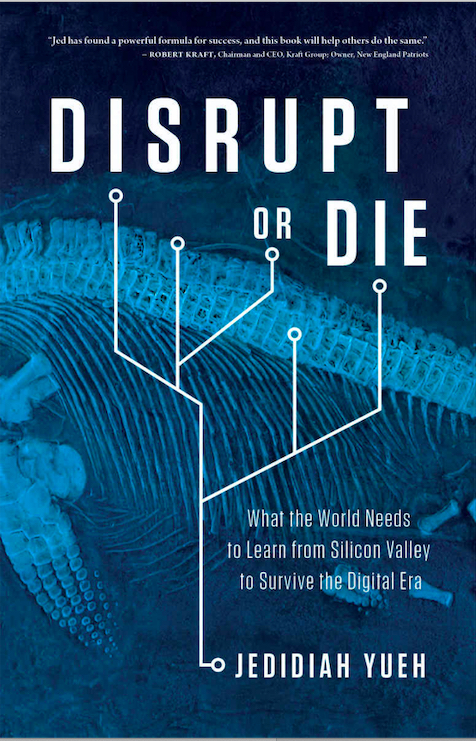Delphix is in the midst of a buyout by private equity-owned Perforce Software, which announced the agreement this week, saying it would increase its DevOps product area coverage.

Delphix provides virtualized test data from multiple sources and with masked personally identifiable information for use in fast-moving DevOps environments. It was founded in 2008 by Jedidiah Yueh. Perforce, founded in 1995 by Christopher Seiwald as a software version control supplier, was taken private in 2016 and provides a variety of products to help developers. It has since grown through a large number of acquisitions, nine up until buying Delphix.
A statement from Perforce CEO Jim Cassens said: “The addition of Delphix to our portfolio adds critical data management capabilities that help enterprise organizations realize an automated and accelerated DevOps pipeline.”
Perforce says the addition of Delphix builds on Perforce’s existing infrastructure automation offering through acceleration of on-demand delivery, self-service test environments, and continuous testing offerings to deliver Shift Left testing with accurate, compliant, and timely test data.
Jedidiah Yueh said in a statement: “We founded Delphix over 15 years ago to help companies automate data and accelerate digital transformation. Today, we enable data governance, compliance, and automation across the multi-cloud for many of the world’s biggest brands. As part of Perforce, we will be positioned to continue innovating and help more customers realize the strategic power of our data platform.”
Harvard English major Yueh founded, developed, and sold pioneering deduplicating backup supplier Avamar to EMC for $165 million in November 2006. He didn’t regard that as a very successful exit as EMC later bought deduplicating backup target supplier Data Domain for $2.4 billion in 2009. Yueh stayed at EMC until 2008 then left to start Delphix as a database copy data management supplier. It made copies of databases and delivered virtual database instances of for test and development, rollback recovery or other purposes, saving storage capacity.
The key realization was that developers always needed test data produced quickly and reliably to speed up application development. As containerization and the DevOps movement spread, this need snowballed. Progress was fast. Delphix expanded the number of source databases and other sources from which it could draw data. It added masking for personally identifiable data and supported compliance requirements.
The company raised $8.5 million in a 2009 A-round, $11 million in a 2010 B-round, then $25 million in a 2012 C-round. By that time it had sold $200 million in software and counted 30 percent of the Fortune 100 as customers. As it grew further it pulled in another $75 million in a 2015 D-round. There has been no more fundraising since then and Delphix says it has raised $124 million in total. TechCrunch classed it as an emerging unicorn in 2015 with a $981 million valuation, and Fidelity International thought it was worth around $850 million. These were the golden years but it was not roses all the way.
A Silicon Valley insider close to Delphix said: ”From the earliest days of Delphix, an IPO was the singular focus. A rallying call for the sales team was ‘$1,000 per share.’ People really really believed in it. Things got rocky as [it] churned through heads of sales. Rockier when the exec team turned over.”

The next year Yueh hired Chris Cook as CEO and went upstairs to an executive chairman role, saying: “Although we’ve grown quickly over the last seven years, we’ve only scratched the surface of the opportunity. Continuing to scale at this level really becomes a matter of talent. Over the last few decades, Chris Cook has established a reputation as one of the top operating executives in the software industry, and we’re looking forward to having him lead our team.”
Yueh used this period to write a book, Disrupt or Die, which was published in 2018.
Cook’s reign was itself disrupted in 2019 with Yueh returning to the CEO role. Cook had grown Delphix to a late-stage private company with several hundred enterprise customers and strong subscription revenues. But Yueh was coming back to take Delphix to “the next levels of company growth and scale,” as board member Asheem Chandna of Greylock Partners put it.
Our insider tells us: “Jed came back, made cuts. Much to Jed’s credit, he’s a killer when it comes to sales. He’s also very focused when it comes to balancing the books.”
Yueh returned the company to higher growth rates. It was thinking about an IPO in 2021 but Yueh dismissed the idea of a SPAC exit. The pandemic did not help. In April 2022, Delphix closed a second consecutive fiscal year of accelerated revenue growth and profitability at a scale well over $100 million in annual recurring revenue (ARR). This increased growth continued in 2023.
Was an IPO possible? Our source said: “Delphix was never going to make it to an IPO – too old, too little growth, no real sex appeal to a market wanting tech companies to look like rocket ships, not Fiats.
“A PE acquisition makes a ton of sense: it’s a big, sustainable business, throwing off cash. I would be surprised if they didn’t massively cut staff while turning the screws on existing customers.”
The financial terms of the acquisition by Perforce are not public. Our contact said: ”The word on the street is that ‘all options are above water’ the highest of which is about $3.66/share or $476 million total.” The thinking is that it’s almost certainly below the $850 million Fidelity valuation back in 2015.
This is Yueh’s second exit after founding and growing a company. What next? In his 50s does he have the energy for a third trip around the startup block? Perhaps he’ll write a second book.
The acquisition is subject to customary closing conditions and is expected to complete in the second quarter of this year.








